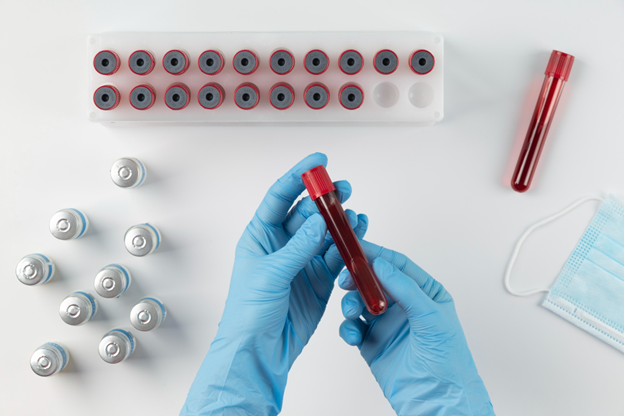What is Vitamin B12?
Vitamin B12, also known as cobalamin, is an essential nutrient that plays a crucial role in many bodily functions. It helps produce red blood cells, maintain a healthy nervous system, and support DNA synthesis. A deficiency in vitamin B12 can lead to a variety of health problems, including anemia, nerve damage, and cognitive issues.
Why is a Vitamin B12 Test Important?
A vitamin B12 test measures the levels of this important nutrient in your blood. The test is used to diagnose vitamin B12 deficiency, which can occur due to various reasons, including:
- Dietary Deficiencies: People who follow vegetarian or vegan diets may not get enough vitamin B12 from their food, as it is primarily found in animal products.
- Absorption Issues: Conditions such as pernicious anemia, celiac disease, or Crohn’s disease can affect the body’s ability to absorb vitamin B12.
- Aging: As people age, the body’s ability to absorb vitamin B12 from food may decrease.
- Medications: Certain medications, like proton pump inhibitors (PPIs) or metformin, can interfere with B12 absorption.
How is the Vitamin B12 Test Performed?
The vitamin B12 test is a simple blood test. A healthcare provider will draw a small sample of blood from your arm, which will then be sent to a laboratory for analysis. The test typically takes a few days to process, and your healthcare provider will discuss the results with you once they’re available.
Signs of Vitamin B12 Deficiency
Vitamin B12 deficiency can lead to a range of symptoms, which may include:
- Fatigue: Feeling unusually tired, weak, or low on energy.
- Pale Skin: A lack of healthy red blood cells can cause pale or yellowish skin.
- Numbness and Tingling: Nerve damage due to B12 deficiency can cause a sensation of tingling or numbness in the hands or feet.
- Cognitive Problems: Memory loss, confusion, and difficulty concentrating can occur with severe deficiency.
- Mood Changes: Depression, irritability, and mood swings can also be linked to B12 deficiency.
Treatment for Vitamin B12 Deficiency
If you are diagnosed with a vitamin B12 deficiency, treatment usually involves:
- Dietary Changes: Increasing intake of B12-rich foods such as meat, fish, eggs, and dairy products.
- Supplements: Oral or sublingual (under the tongue) B12 supplements may be recommended to boost levels.
- Injections: In more severe cases, B12 injections may be needed for faster absorption.
Conclusion
Vitamin B12 is essential for overall health, and a deficiency can lead to serious complications if left untreated. If you’re experiencing symptoms of a B12 deficiency, it’s important to talk to your healthcare provider about getting tested. With the right treatment and dietary adjustments, you can improve your B12 levels and support your overall well-being.
Schedule your test today at Advance chouhan diagnostic!

